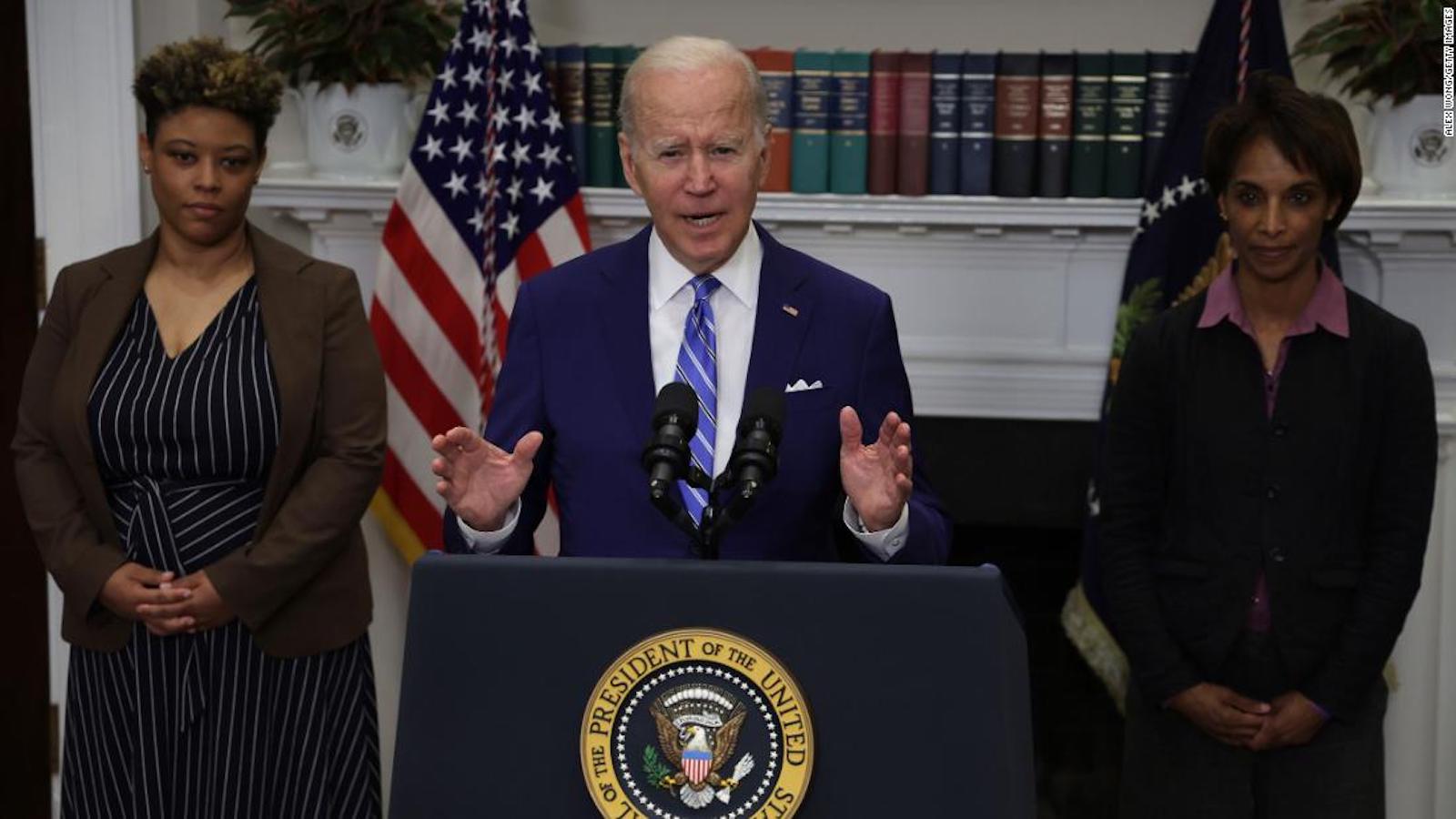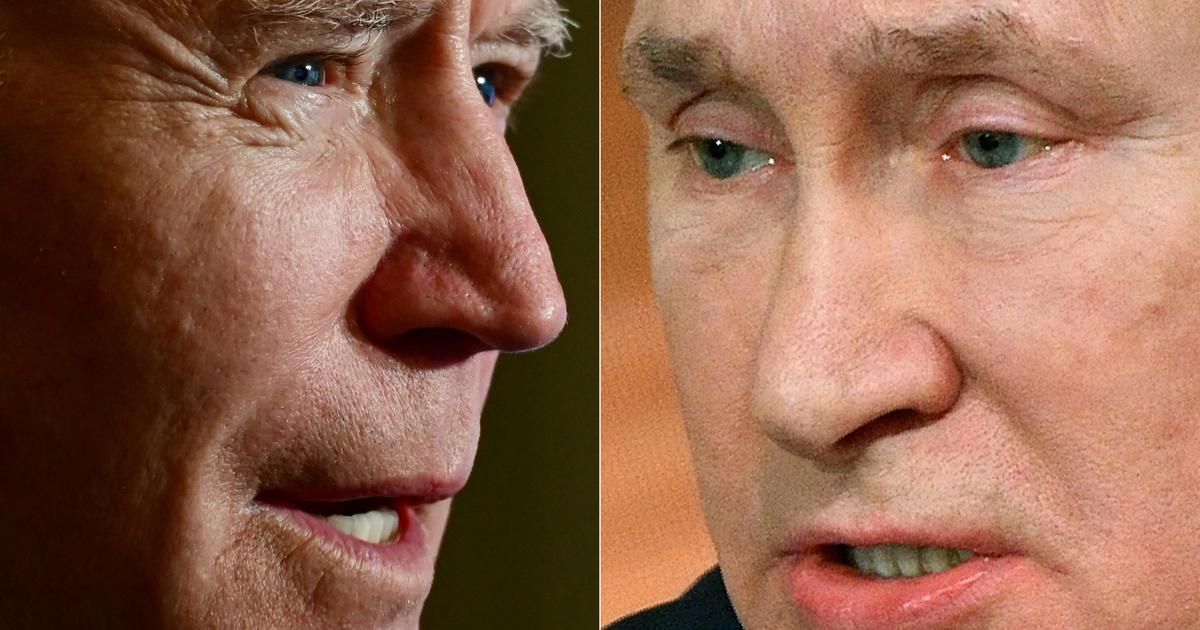US believes Pyongyang would resume nuclear tests 0:42
Washington (CNN) --
US President Joe Biden leaves Thursday for a visit to Asia to boost the alliance, a belated first trip to a region that remains central to his foreign policy goals, even as his focus shifts. has moved away from this region.
Biden's stops at two staunch US allies, South Korea and Japan, are meant to bolster ties at a time of global instability.
While Biden and his team have devoted much of their time and resources to Russia's invasion of Ukraine, provocations from North Korea have intensified and China continues to flex its economic and military might.
When he lands in Seoul this Friday, the tensions in the region will be palpable.
North Korea appears to be preparing for an underground nuclear or intercontinental ballistic missile test around Biden's visit, according to officials, even as it grapples with a major Covid-19 outbreak.
It is in that context that Biden will embark on his most intense efforts to engage Asian allies since taking office.
The White House says it is prepared for all contingencies, including a nuclear or ballistic test while Biden is on the Korean peninsula.
In Seoul, Biden will meet with the country's newly elected president, Yoon Seok-youl, who is holding elective office for the first time and has stated his desire to expand his country's foreign policy beyond focusing solely on North Korea.
advertising
And in Tokyo, the president will meet for bilateral talks with the country's prime minister, Fumio Kishida, before meeting with the leaders of Japan, Australia and India at a meeting of the Quad association that has been revitalized at his initiative.
Along the way, Biden is expected to reaffirm US support for his allies amid mounting provocations from North Korea, while also pursuing new areas of economic cooperation, particularly in advanced technologies hit by supply chain disruptions. supply.
And he is expected to unveil a new Indo-Pacific economic framework, although the plan has already been criticized for lacking details.
US concludes North Korea may be ready for underground nuclear test this month
Biden told a White House reception this week that his trip was aimed at "affirming the importance of our Indo-Pacific alliances" and "celebrating the indispensable partnerships" in the region, including across cultural ties.
The president will make his first visit to Asia later than he would have liked in his presidency, according to his officials, who say Covid restrictions and the pull of other crises made it difficult to schedule a trip.
Biden is the third straight US president to try to refocus foreign policy on Asia, though events in between have often stood in the way.
"Several administrations in succession in the United States have attempted this effort to launch more fundamental efforts, policies, and frameworks in Asia, East Asia, the Indo-Pacific, and found themselves blocked, misdirected, or directed toward other activities," said Kurt Campbell, senior director for Asia at Biden's National Security Council earlier this month.
"And that's been something that I think all of us are deeply aware of in policy making and execution."
Biden signs law to expedite US military aid to Ukraine
Controversy after Biden's request for more funds for Ukraine 5:52
War in Ukraine looms over trip to Asia
After months of overwhelming attention on Russia's war in Ukraine, a conflict that has drawn comparisons to the Cold War and reinvigorated alliances built over the past century, Biden's debut visit to Asia is an opportunity to renew what he sees. as the challenge of this century: confronting a rising China through a system of renewed economic and military partnerships.
"We believe this trip will put President Biden's Indo-Pacific strategy on display and show in vivid color that the United States can both lead the world in responding to Russia's war in Ukraine, and at the same time chart a course for effective, principled American leadership and engagement in a region that will define much of the future of the 21st century,” National Security Adviser Jake Sullivan told reporters a day before Biden left for Asia.
Sullivan dismissed the suggestion that the president and his team were distracted from their Asia initiatives by the crisis in Ukraine.
"We don't really see this as a tension between investing time, energy and attention in Europe, and time, energy and attention in the Indo-Pacific. We see this as mutually reinforcing," he said.
He added: "For us, there is a certain level of integration and a symbiosis in the strategy that we are following in Europe and the strategy that we are following in the Indo-Pacific and the unique ability of President Biden to really bring those two fronts together, I think. that will be a hallmark of his foreign policy presidency.
Even as Biden turns his attention to Asia, the crisis in Ukraine remains the dominant focus of his administration's foreign policy.
Before leaving Thursday, Biden will meet at the White House with the leaders of Finland and Sweden, who submitted emergency applications this week to join NATO following Russia's invasion of Ukraine.
No short-term end in sight to Russia's war in Ukraine, officials in the West say
A series of challenges await in Asia
The renewed standoff with Russia has somewhat obscured Biden's main foreign policy goal: to engage China in intense competition and avoid outright conflict.
Administration officials have acknowledged that top foreign policy leaders within the administration, along with the president himself, have been preoccupied in recent months with maintaining a united Western front against Russia and providing military and economic assistance to Ukraine.
Even as Russia's war continues, however, tensions have been building elsewhere.
North Korea, which Biden identified as his biggest foreign policy challenge early in his presidency, resumed provocative weapons tests ahead of Yoon's inauguration.
The Biden administration has tried to restart diplomacy with Pyongyang, but has received little response.
Yoon, meanwhile, vowed to harden South Korea's line against North Korea after former President Moon Jane-in tried to cultivate diplomacy, including helping then-President Donald Trump set up a series of summits with Kim.
During Trump's final visit to Seoul as president, he made a detour to the demilitarized zone, where he shook hands with Kim and crossed the demarcation line into North Korea.
Previous presidents have also made visits to the heavily fortified border area, but White House press secretary Karine Jean-Pierre said Wednesday that a visit to the DMZ was not planned during Biden's stop in Korea.
Biden says there will be implications if China provides support to Russia 5:13
A united West is a warning to China
Despite the focus on Ukraine, officials say Biden remains determined to realign US foreign policy toward the challenges of the coming decades.
That includes, most urgently, building the kind of alliance structure in Asia that already exists between transatlantic allies and has formed a largely united bulwark against Russia following its invasion of Ukraine.
US officials believe the strength of coordinated sanctions and military assistance to Ukraine between US and European allies has come as a surprise, not only to Russian President Vladimir Putin, but also to his ally in Beijing, President Xi. Jinping.
Also surprising was the willingness of Asian countries, including Japan, to join the sanctions and help ease Europe's dependence on Russian energy through natural gas supplies.
Biden and his team hope that the response of the US network of alliances to an unprovoked invasion of a country will send a message to Xi that the consequences of such action in Asia could be just as dire.
However, there is currently no Asian equivalent to NATO, which has provided a critical structure for the Western response to Russian aggression.
And China has been working hard in recent years to cultivate countries in the region while showing off its regional power.
Biden has taken several steps to counter those moves: reinvigorate the Quad grouping of Japan, Australia, India and the United States;
sharing, for the first time, sensitive US nuclear-armed submarine technology with Australia;
and last week he hosted a summit of Southeast Asian leaders at the White House to discuss trade and security.
However, it is far from clear that those steps have done much to curb China's ambitions.
And some analysts have drawn parallels between the Russian invasion of Ukraine and fears about the future of Taiwan, an autonomous democratic island that Beijing claims as its own and is not ruling out taking by force.
"While governments across the region, our allies, are stepping up on Ukraine and clearly articulating how impressive and important it is for the United States to lead this global coalition, if you look at some opinion polls, like in Taiwan, or if you look at the editorials , there's nervousness ... about whether the United States can handle two major contingencies," said Michael J. Green, senior vice president for Asia and president of Japan at the Center for Strategic and International Studies in Washington.
"Can we handle, you know, Ukraine and if Taiwan was suddenly a crisis, handle that at the same time? Do we have the bandwidth? And that's a subtext that has the administration a little worried," Green said.
Asia-Pacific Trade Agreement






/cloudfront-eu-central-1.images.arcpublishing.com/prisa/MGXQCRPVF5E7IC2XTMDAP6ZWZ4.jpg)


/cloudfront-eu-central-1.images.arcpublishing.com/prisa/KMEYMJKESBAZBE4MRBAM4TGHIQ.jpg)



